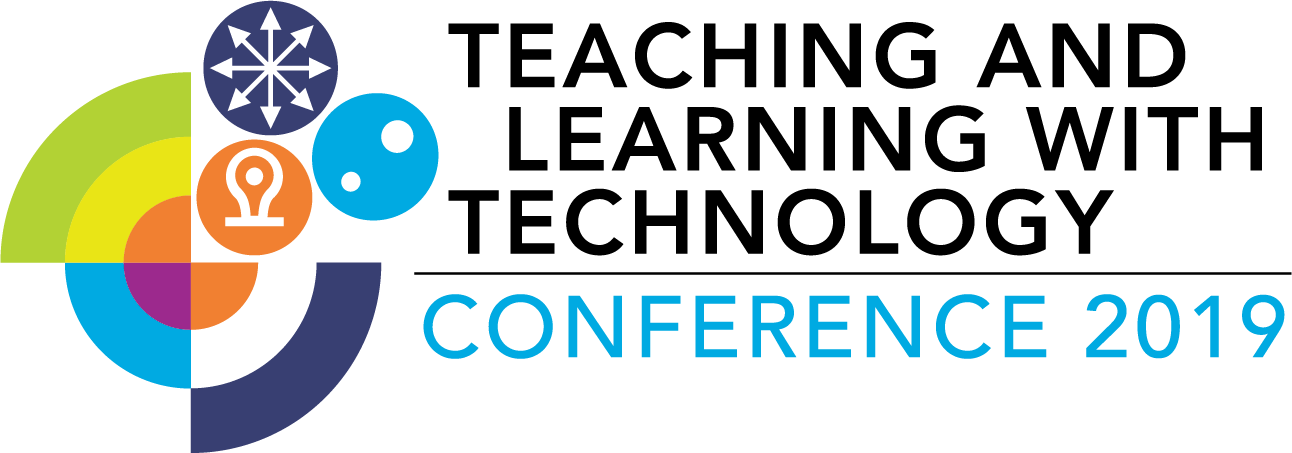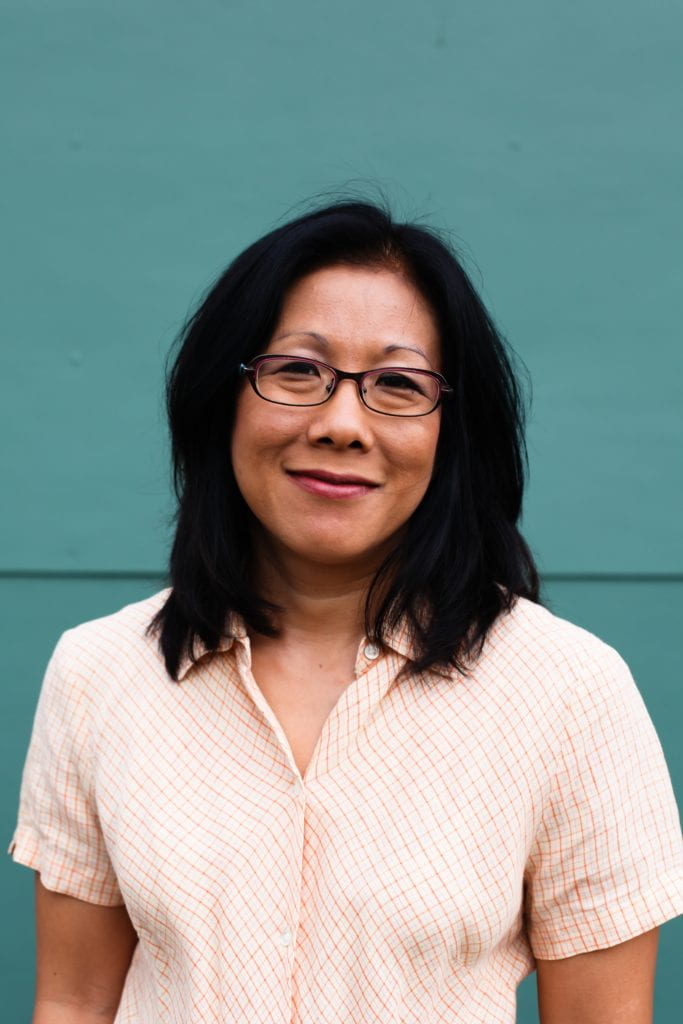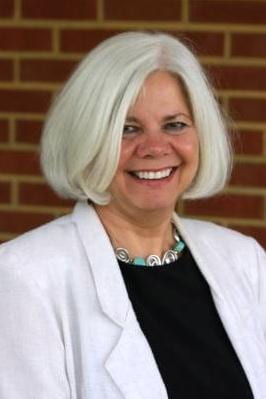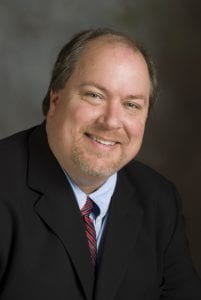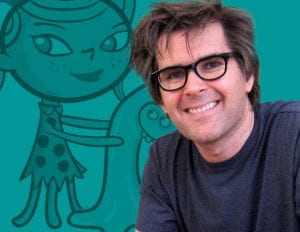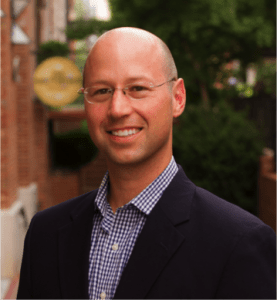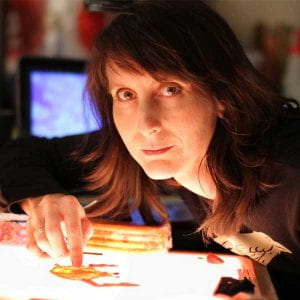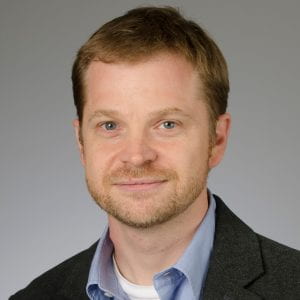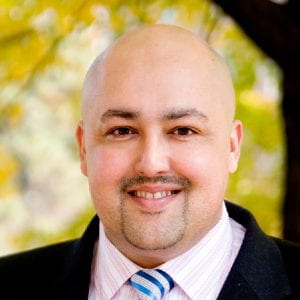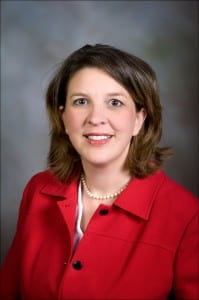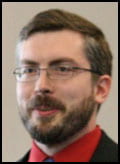Past Keynote Speakers
2018
Mimi Ito
Connected Learning
Today’s social, mobile, and gaming technologies offer new ways of supporting learning that are engaging, connected to the wider world, and tailored to specific interests, identities, and learning styles. Our research has found, however, that only the most activated digital learners are taking advantage of this potential. People are going online for informal and interest-driven learning, but with few connections back to classrooms and academic subjects.
What kinds of platforms, policies, and technologies can best connect between in-school and out-of-school learning and among people’s social worlds? Mimi Ito will describe her research on interest-driven and digitally-enabled learning, and describe connected learning, an approach to realizing longstanding progressive goals of education by leveraging today’s technology.
Connected learning is when a person is able to pursue a personal interest with the support of others in a way that is directed to opportunity and achievement in school and the wider world.
Follow on Twitter @mizuko
More about Mimi Ito.
Pam Moran (Breakfast Keynote)
Timeless Learning: How Imagination, Observation, and Zero-based Thinking Change Schools
Our homes, communities, and the world itself need the natural assets our children bring with them as learners, and which they often lose over time on the assembly line that pervades most of the public education system today. No actions are more important in school than developing, supporting, and reinforcing children’s sense of agency, the value of their voices, and their potential to influence their own communities. Using progressive design principles to inform pathways to disrupt traditions of education today, Pam will describe how to make innovations real that have a timeless and meaningful impact on students, keeping alive the natural curiosity and passion for learning with which children enter school. Using the narrative of contemporary progressive educators, she will take the audience through a deep map of the processes necessary to move from schools in which content-driven, adult-determined teaching has been the traditional norm to new learning spaces and communities in which context-driven, learner-centered practices are the progressive norm.
Follow on Twitter @pammoran
More about Pam Moran.
2017
Peter Doolittle
Integrate Everything: Making the Pedagogical Sausage
Peter Doolittle is currently the Director of the School of Education and Professor of Educational Psychology, and former Director of the Center for Instructional Development and Educational Research, at Virginia Tech.
His academic background includes 30 years teaching undergraduate and graduate students; using traditional, blended, and online formats; across several subject areas; and, at various institutions in the U.S. and abroad.
He has published more than 50 peer-reviewed articles and chapters, provided over 100 national and international keynote addresses, and has been awarded in excess of $2 million in external funding.
In 2013, he provided a TED talk at TED Global in Edinburgh, Scotland (How Working Memory Makes Sense of the World).
His current research focus includes the investigation of the impact of working memory capacity on student learning in multimedia/digital learning environments.
Ryan Bledsoe (Breakfast Keynote)
Duo Musical Playground: Enhancing relationships between children and adults through environment, iteration, and technology
Ryan Bledsoe is a music educator who has worked with infants through college students in Florida, Arizona, and Texas.
As a doctoral student in music education at Arizona State University, Ryan researches and writes about creativity, music technology, and music making.
She recently founded the Duo Musical Playground which offers play-based music classes using interactive technology to children and caregivers in North Texas.
2016
Mark Frauenfelder
Making Makers: The New Ideas and Tools Driving a Movement
Mark Frauenfelder is the founder of Boing Boing, a blog about cultural curiosities and interesting technologies with 4 million monthly unique viewers and the winner of the Bloggies’ Lifetime Achievement and Best Group Blog awards. He’s the founding editor-in-chief of MAKE, the only magazine exclusively devoted to do-it-yourself projects. He’s the founding editor-in-chief of Wired Online, and was an editor at Wired magazine and Wired Books from 1993-1998. He was Playboy magazine’s technology columnist for three years. He is also the editor-in-chief of Cool-Tools.org, a tool review site with roots connected to the Whole Earth Catalog.
As a maker of things, Mark has built cigar box guitars, skateboards, electronic musical instruments, chicken coops, kinetic sculptures, and robotic monkeys that keep cats from jumping on furniture. He has conducted workshops that teach people how to make sauerkraut, program Arduino microcontrollers, solder circuitboards, build vibrating toothbrush cars, and construct mandolins from tuna cans.
Mark is also an artist and designer, and his work has appeared in group and solo gallery exhibitions throughout the United States. He designed Billy Idol’s “Cyberpunk” CD cover, video box, and print advertisements.
He has appeared on The Colbert Report (twice) and the Martha Stewart Show, and has written for The New York Times Magazine, The Atlantic, Popular Science, Business Week, The Hollywood Reporter, Wired, and other national publications.
Mark is the author of seven books:
- The Happy Mutant Handbook: Mischievous Fun for Higher Primates
- Mad Professor: Concoct Extremely Weird Science Projects
- The World’s Worst: A Guide To The Most Disgusting, Hideous, Inept, And Dangerous People, Places, And Things On Earth
- The Computer: An Illustrated History
- Rule the Web: How to Do Anything and Everything on the Internet — Better, Faster, Easier
- Made by Hand: My Adventures in the World of Do-It-Yourself
- Maker Dad: Lunch Box Guitars, Anti-Gravity Jars and 22 Other Incredibly Cool Father-Daughter DIY Projects
He lives in Los Angeles with his wife, Carla Sinclair and his two DIY daughters.
Chad Ratliff (Breakfast Keynote)
Radical Transformation: Unmaking School by Design
Chad Ratliff is a district administrator for Albemarle County Public Schools, which serves ~14,000 students in 26 different school facilities, located over 700 square miles surrounding Charlottesville, VA. His work focuses on seeding and expanding the district’s portfolio of nontraditional learning experiences such as maker-centered learning, customized pathways, STEAM, and entrepreneurial opportunities across the K12 curriculum as part of the district’s emphasis on student agency and lifelong learning. He has represented this work at the White House on several occasions, presented for the National Science Foundation and U.S. Patent and Trademark Office, is frequently invited to speak on these topics across the country and has written for Edutopia, EdSurge, and other national publications.
He also serves as Project Director for the $3.4 million U.S. Department of Education’s Investing in Innovation (i3) grant, Advanced Manufacturing and Engineering as a Driver of Cross-Curricular Change, and heads up strategic partnerships for the district, including collaborations with MIT, Smithsonian, Battelle, University of Virginia, Fablevision, Princeton, and the Maker Education Initiative. Prior to joining Albemarle, Chad served Martinsville City Public Schools in Southern Virginia where he was a 3x Most Influential Educator honoree and 7x Wrestling Coach of the Year award-winner.
Also an adjunct professor of entrepreneurship and active in the entrepreneurial community, Chad was appointed by Virginia Governor Terry McAuliffe to his Council for Youth Entrepreneurship in 2015, served as a StartupWeekend EDU organizer and coach,and was a facilitator for the High School of the Future Startup event at the Governor’s 2013 STEM Summit. He has been profiled as one of the top leaders under the age of 40 in both the Blue Ridge Business Journal and C-ville Weekly; was a Virginia Board of Education appointee to the State Advisory Committee for Career and Technical Education from 2009-2015, served on the Charlottesville Business Innovation Council Board of Directors, and was Board Chair for the Virginia Career Education Foundation, a nonprofit established by then-Governor Mark Warner.
Chad earned his Master’s Degree in Education from the University of Virginia and his MBA from Virginia Tech. He is also an alumnus of the University of Virginia’s Darden School of Business Executive Educators Leadership Institute. He resides in Charlottesville with his wife and their two children. He can be reached online or at chadsratliff [at] gmail.
2015
Lynn Tomlinson
Tactile Technology
Lynn Tomlinson investigates tactile technology in the classroom, workshops, in exhibits she curates, as a scholar, and as a creator of expanded animation projects.
Teaching is an integral part of her creative practice: as a teacher, professor, and visiting artist she design creative projects that engage students of all levels, from elementary students to adults. She is a professor in the Electronic Media and Film department at Towson University outside Baltimore, Maryland. She has also taught at Cornell University and other universities and art schools. She leads workshops that use animation and technology to engage and empower students, particularly girls and young women.
Her interest in hybrid art forms and interdisciplinary practice informs her pedagogical and creative practice. She looks at places where animation intersects with painting, sculpture, puppetry, live performance, and immersive and interactive experience. Her films and hybrid projects investigate environmental change, states of subjectivity, and the poetics of scale, as well as social engagement and community building.
Her films have screened at international festivals including Annecy, Ottawa, Hiroshima, Tricky Women, and Anima Mundi, and she has received Individual Artist Fellowships from the states of Pennsylvania and Florida. She is known for a unique animation technique, clay-painting, using oil-based modeling clay brought to life frame-by-frame. Her animated shorts have aired on children’s public television, MTV, and Sesame Street, and are featured in The Animation Bible.
Her 2014 short animated film, The Ballad of Holland Island House, won first prize in Greenpeace USA’s Postcards from Climate Change. It also won Best Animation at the University Film and Video Association, was a finalist for the Student Academy Award, is screening in many prestigious festivals around the world, and is included in the 2015 Animation Show of Shows, a collection of award winning independent animated shorts screening in art theaters across the country.
Jeffrey Young
Ed-Tech Leaders Are From Mars, Professors Are From Venus (And Students Are From Mercury)
Jeffrey R. Young is an editor and writer focused on technology issues and the future of education. He is currently a senior editor at The Chronicle of Higher Education overseeing coverage of technology and leading a team exploring new story formats. He is also an adjunct professor of journalism at the University of Maryland at College Park, teaching a course on multimedia storytelling.
Last year he spent a year as a Nieman Fellow at Harvard University, where he was also a fellow at the Berkman Center for Internet and Society.
Young has written for national publications including The New York Times, New Scientist, Slate, and The Wall Street Journal. An article he wrote was selected for the anthology The Best of Technology Writing 2007.
He joined The Chronicle in 1995, and has previously led the paper’s Students section, focusing on issues of college admissions and student life. In 2007, Young took a yearlong break from writing to become The Chronicle’s first Web editor, helping start blogs, podcasts, and multimedia features.
Young is a frequent speaker on issues of education and technology, having given talks at the South-by-Southwest Interactive conference, at education events, and on campuses. He received a bachelor’s degree in English from Princeton University in 1995 and a master’s in communication, culture, and technology from Georgetown University in 2001. He lives in Washington, DC, with his wife Leah, who is also an education journalist, and their two young children.
2014
Siva Vaidhyanathan
Siva Vaidhyanathan is the Robertson Professor of the Department of Media Studies at the University of Virginia. He also teaches in the University of Virginia School of Law. Vaidhyanathan is the author of The Googlization of Everything And Why We Should Worry (University of California Press, 2011), Copyrights and Copywrongs: The Rise of Intellectual Property and How it Threatens Creativity (New York University Press, 2001) and The Anarchist in the Library: How the Clash between Freedom and Control is Hacking the Real World and Crashing the System (Basic Books, 2004). He also co-edited (with Carolyn de la Pena) collection, Rewiring the Nation: The Place of Technology in American Studies (Johns Hopkins University Press, 2007).
Vaidhyanathan has written for many periodicals, including American Scholar, the Chronicle of Higher Education, the New York Times Magazine, MSNBC.COM, Salon.com, openDemocracy.net, Columbia Journalism Review, BookForum, Slate.com, the Washington Post, and The Nation. He is a frequent contributor to National Public Radio and to MSNBC.COM and has appeared in a segment of “The Daily Show” with Jon Stewart. In March 2002, Library Journal cited Vaidhyanathan among its “Movers & Shakers” in the library field. In the feature story, Vaidhyanathan lauded librarians for being “on the front lines of copyright battles” and for being “the custodians of our information and cultural commons.” In November 2004 the Chronicle of Higher Education called Vaidhyanathan “one of academe’s best-known scholars of intellectual property and its role in contemporary culture.” He has testified as an expert before the U.S. Copyright Office on the Digital Millennium Copyright Act.
After five years as a professional journalist, Vaidhyanathan earned a PhD in American Studies from the University of Texas at Austin. He has taught previously at Wesleyan University, the University of Wisconsin at Madison, Columbia University, New York University, and Universiteit van Amsterdam. You can follow him on Twitter at @sivavaid
2013
David Parry
Steal this Syllabus
The digital network has radically increased our ability to share knowledge, yet somehow in the midst of this historical change knowledge has become by many measures, less free and more controlled than ever before. The Open Access movement within academia seeks to counter this trend and insure our research is made widely and freely accessible, but we also need an equal focus on Open Access pedagogy in an effort to make sure our teaching is as available as possible. In this talk Professor Parry will explain why he believes ethically in opening up his pedagogical practice as well as discuss some of his more recent experiments.
2012
Jim Groom
Tales from the Teaching Crypt: Education After Online
2011
Jennifer Sparrow
Engage, Embrace and Enhance: Using Technology for Creating Exciting Learning Environments
Rapid technology changes require faculty to make decisions about the adoption and utilization of technology in their teaching and research. How do we make decisions about implementing new technologies, not just for the sake of having technology, but for true support of our learning outcomes? Using technology should allow students to be engaged in the learning experience. Faculty should be able to embrace these new technologies at their comfort level and with full institutional support. Enhancing student engagement and interaction will enable them to be partners in their learning. This session will show examples of how technologies can be easily (and painlessly) integrated into your current teaching. An alignment of technologies with both Chickering and Gamson’s seven principles of good undergraduate education and Bloom’s taxonomy will allow you to easily match your learning outcomes with available technologies. This fast-paced, and hopefully humorous, presentation will provide a plethora of resources for both the novice and expert technology-adopters.
Jennifer Sparrow is currently the Director of Emerging Technologies and New Ventures for Virginia Tech. For more than 12 years, she has championed the use of technology to engage students in the learning process. She has a passion for working with faculty to explore new technologies and potential implementations in teaching and learning.
Jennifer received her bachelor’s degree from Smith College, her master’s degree from Florida Gulf Coast University, and doctorate from the University of Central Florida. She is currently the chair of the EDUCAUSE Learning Initiative Advisory Board and serves on the EDUCAUSE Evolving Technologies Committee.
She is a part-time blogger, an infrequent tweeter, technology explorer, and struggling photographer with a biting sense of humor and not enough hours in her day.
2010
Jeff McClurken
Teaching and Learning with Student-Generated, Online, Creative and Public New Media
The notion of New Media is no longer that new, yet it’s a term that we’ve still only begun to apply to teaching in higher education in a systematic and meaningful way. This talk will explore ways that teaching and learning with blogs, wikis, and an array of other New Media tools can change undergraduate learning by cultivating 21st-Century literacies (information, digital, and visual) through a focus on students as creators in intentionally public, online spaces.
Jeffrey W. McClurken is Associate Professor and Chair of History and American Studies at the University of Mary Washington. His research areas include the history of veterans, families, gender, the Pinkertons, mental institutions, the 19th-Century American South, and the digital humanities. [These are fields that overlap more than you might think.] He teaches classes on a wide array of US History topics, including American technology and culture, digital history, women’s history, history & film, and TED.com. His book, Take Care of the Living: Reconstructing the Confederate Veteran Family in Virginia, was released by UVA Press in 2009. His interest in the digital humanities began while programming his Commodore 64 using a cassette tape drive in the 1980s, but really took off when he entered census data and hand coded HTML for the Valley of the Shadow project in the mid-1990s. He has been involved in digital pedagogy since making his students hand code HTML in the early years of the 2000s. He blogs at Techist, tweets from @jmcclurken, and is a contributing author for the ProfHacker group blog at the Chronicle of Higher Education. Links to his classes and presentations can be found at http://mcclurken.org/.
